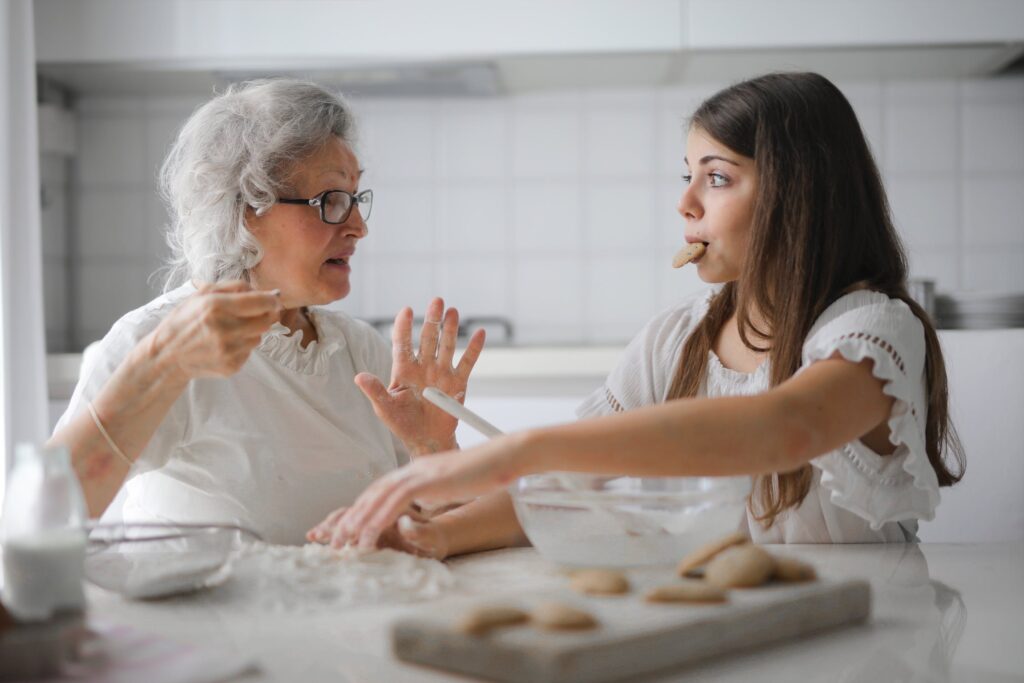
Imagine a girls’ day with two sisters and their mom. They’re hanging out, perhaps having a relaxing brunch at home, while one of the daughters talks about the end of her recent, troubled relationship. Suddenly, they hear a loud crash when her ex-boyfriend throws a rock through a window, comes inside, and starts punching and choking the daughter. What would you do if you were there?
A mother and sister found out last weekend. As the Los Angeles County Sheriff described it, “They tried to pull him off, and it didn’t work; he was too strong. So they had to resort to using weapons.” By weapons, he means that they used a kitchen knife to stab him and a golf club to beat him. By the time the incident was over, the ex-boyfriend was dead. Mother and sisters are fine, and aren’t being charged because it’s been identified as a clear case of defense.
Let’s put aside the legalities for a moment since the circumstances of the attack and defense were relatively straightforward, and let’s not judge a relationship we have no details about. Let’s talk just about what you would do if you were there.
This is another situation where it’s really easy to say “well if I had a gun, I’d just…” But let me stop you right there. The minute you say “just” as part of a solution to bad things happening, you’re probably going to run into problems. For one, would you, in fact, actually have your gun accessible and usable? It’s okay to say no. Not everyone carries their gun around in the house, and not everyone has quick-access safes to store their guns loaded. No few folks store guns completely unloaded for safety purposes, especially if they don’t have a secure place to keep them. That’s fine. But that also means that getting a gun out from a traditional safe and getting it loaded can take too long to be useful in an emergency situation. That’s doubly true if you aren’t familiar with how to use your gun, and are fumbling around with it because of the stress in that moment. Simply having a gun in the house is not a talisman that will protect you simply by being present.
Even if you have a gun, loaded, in your hand, do you know how to shoot one person in a fight without accidentally shooting the other person you’re trying to save? There’s a reason so many instructors and others harp on the issue of keeping your gun pointed in a safe direction and never pointing your gun at anything you don’t want to destroy. Turns out it can be a really complicated, fast-moving situation, with a worst-case scenario of killing your loved one in the process of attempting rescue. Claude Werner would call that a negative outcome, and I’m not sure anyone could really disagree. It’s a solvable problem, yes, but one that takes training and forethought to address, with no small amount of risk.
Here, the ex-boyfriend ended up dead. I wonder if the mom and sister realized that was a possibility in the heat of the moment. Either way, they’ll have to live with it, along with their daughter and sister. There’s triumph, of course, in survival and successful rescue. There may be relief, there may be a sense that justice was done. There may also be guilt, wondering if something else could have been done before or during to prevent the entire incident. There may be anger at being forced into this sort of action, and regret at a life taken, no matter how well-deserved. It’s not something everyone can live with, even with psychological care and community support. With the nature of the weapons used, it’s likely they didn’t think before what it might mean to literally have another person’s blood on their hands. Most of us don’t. That’s normal. But perhaps we should, so that if it ever comes up, we aren’t blindsided and we can choose our actions and tools accordingly (here’s where I put in a plug for pepper spray, which is only uncomfortable all around and not deadly but sure can slow down or stop a fight; and yes, it will clean out of your indoor space).
That kitchen knife and that golf club were excellent emergency choices. After all, they worked when raw strength didn’t. Hand-to-hand combat is a difficult task and muscles matter. Weapons are a thing because we can’t count on physical parity, because sometimes yes, we are weaker and less skilled than our attackers. And weapons don’t have to be purpose-made to be effective, as we see here. The real trick is to choose something that you can wield and that will have results. There’s nothing I can fault about objects made to hit and cut other things with. But since we don’t all have golf clubs lying around, and kitchens might be too far, then what? Look around you right now. Then maybe when you’re watching TV in your living room tonight. Be realistic; you’re not MacGyver. What can you really lift? What can you really swing in a controlled manner? What will really cause significant, fight-stopping damage? Are you prepared for plunging that sharp object into a human body, or hearing that heavy one break someone’s bones? It’s a vicious feeling, one that can be sickening, but also one that can be necessary for you or a loved one to live.
So, what will you do if you are there one morning, with your mom, your sister, your friend, and someone comes crashing through the door or a window, and you watch him start hitting and punching a woman you love?
[Pic for attention, not the actual women in the news story]




